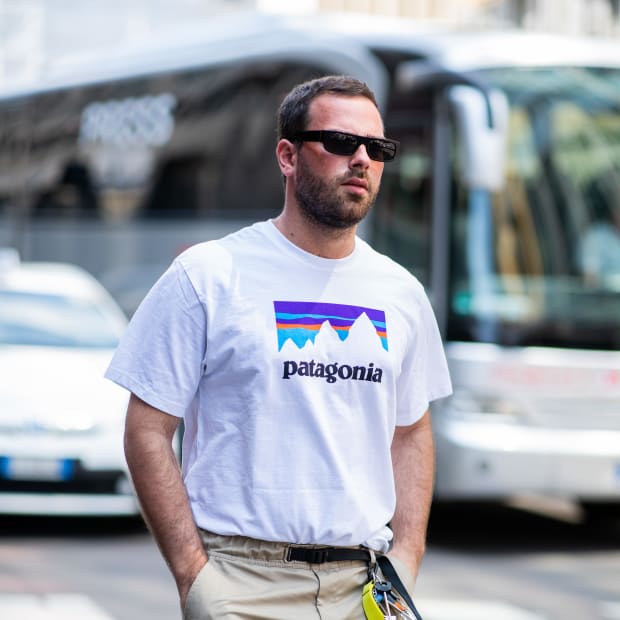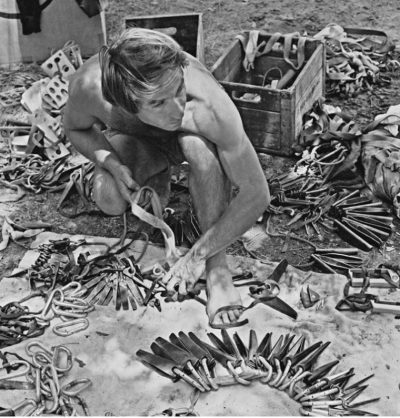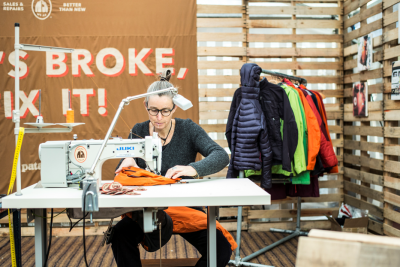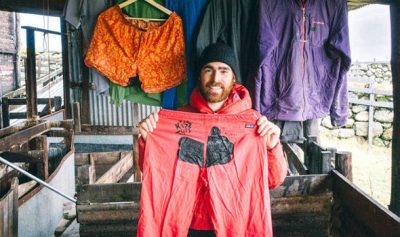
The One Leads Slow Fashion
Many of you must have heard or know Patagonia. Patagonia is a unique company, it makes money by being 100% sustainability-conscious. It is constantly defining conventional belief that businesses must be pro-fast-fashion and not pro-slow-fashion for businesses to survive. Patagonia’s sustainability story is craftily built in the company’s heritage of almost seven decades. Patagonia is an inspiring story of its founder, Yvon Chouinard, who at the age of 18 years was already an avid climber and surfer, exciting adventures that would later open his eyes to environmental sustainability. Excitement Chouinard was deriving in the new sport meant most of the time he was shuffling the intensity on the sides of sheer cliffs, and for this, he was constantly hooked. More years in the sport and more experience as this became his way of life, Chouinard grew more environmentally conscious by noticing the damage his climbing equipment had on the rock faces. This was when the idea of having environmentally sustainable and friendly products came about. The picture below shows Chouinard as a climber and surfer in the early days with some early environmental friendly innovations.

Chouinard in the early days
The rise of Patagonia is a result of Chouinard’s resilience and commitment to make small changes that cumulatively turn the planet into a better place. Chouinard’s commitment to preventing further damage to rocks and the environment as he continued to enjoy his sport created a driving force in him that later became a signature and the ethos of the Patagonia business. Chouinard came up with ‘clean’ rock climbing equipment, signalling a breakthrough of environmentally superior innovation. This was transferred to the Patagonia idea. The birth of Patagonia in 1973 reflected a union of climbing adventure and discovering the importance of environmental-conscious products. As Chouinard continued to climb rocks and surf, he found he was negatively impacting the environment with his equipment. This was an awakening moment as he saw the importance of sustainability and why it was necessary to become environmentally conscious.
Patagonia’s sustainability contradicts the fast fashion philosophy in which production is infused with high consumerism values. Patagonia’s sustainability reminisces slow fashion, and this is built on its recently updated mission statement, “we’re in business to save our home planet“. Many have wondered how Patagonia, a company that even discourages its customers from buying more of its products through such “Don’t buy this jacket” campaigns, can make profits and remain competitive as it is today. Take, for example, today, fast fashion is over $203.3 billion. Apparel companies must constantly focus on short-lasting products with higher and faster disposal rates to meet a high consumerism culture. However, Patagonia has carved a unique difference from the rest of the companies- it has prioritised high-quality, long-lasting apparel and offers a valuable repair and reuse program. The picture below is of a Patagonia employee repairing torn apparel.

Patagonia employee repairing torn apparel
The planet faces serious climate change threats, Patagonia is playing its significant role even if it is in small measures. Patagonia still thrives and prioritises the beliefs of its founder Chouinard anchored on sustainable production and consumption. Chouinard desires that even as humans exploit and meet their needs from the environment, they have a cardinal responsibility to use it sustainably. This reflects in many actions that Patagonia promotes and is geared towards sustainability. The bastion of the company is the sustainable supply chain that is pro-environment-saving. From the products that Patagonia makes to the materials it uses and the means and how it makes products to reach customers, the company ensures everything to reflect the environmental sustainability causes.
Patagonia is fully committed to reducing its environmental impact. Probably in the world, it is the only and among the very few ones using certified organic cotton, and its products use organic fabrics. Besides, Patagonia’s high proportion of the material comes from recycled fabrics, including polyester, nylon, and wool. Similarly, Patagonia has a strong membership in Sustainable Apparel Coalition and the 1% For the Planet, largely pro-slow fashion philosophy organisations. Additionally, Patagonia has set a target of becoming carbon neutral by 2025, and since 1986, Patagonia has committed 1% of its annual sales to environmental cause activities around the world. Indeed, today, Patagonia has trained thousands and thousands of environmental activists around the planet who are impacting positively on the planet as they join efforts in tackling the most pressing environmental issues. Below picture depicts some of Patagonia’s repair and reuse programs.

Patagonia’s repair and reuse programs
Whilst many have cast doubt about the economic sense of sustainability, Patagonia has not feared to risk. Patagonia is leveraging a fast-growing consumer base that is highly sustainability-conscious. These consumers do not look at anything apart from the environmentally conscious of a company, brands, products, services, and activities. Patagonia is a case study of a company that can make big profits and remain competitive even when it pursues sustainability goals. The idea is that more environmentally-conscious products are in high demand from consumers who want their businesses or brands to take a leading role in tackling climate change and environmental degradation. Patagonia is an exciting and inspiring story that can be done and done well to commit to a sustainable cause. Patagonia is a case study with enormous lessons for others to learn something about sustainable fashion.
In the context of sustainable fashion, Patagonia is winning and offering inspiration even though tough work remains ahead. However, on the sustainability philosophy of its founder-Chouinard, the company has a strong foundation to provide leadership and direction on sustainability issues and their practical solutions. Patagonia can show that in a world of alluring fast fashion and businesses making profits from fast-disposable fashion, there lies a big opportunity to promote sustainable fashion and remain competitive and profitable. There is fierce competition from fast fashion, but Patagonia encourages enormous opportunities to make profits with effective sustainability innovations. Moreover, Patagonia demonstrates that with effective sustainability campaigns that are emotionally inspiring, more consumers can change attitudes and beliefs and become sustainability-conscious. Consumers are likely to associate and commit to brands, products, and environmentally conscious businesses as this happens.
